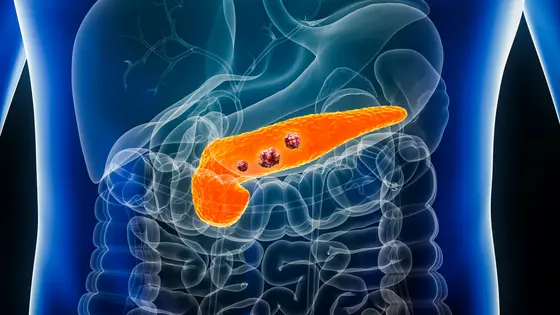Cancer of the pancreas still has an extremely poor prognosis: barely ten percent of patients survive the first five years after diagnosis. Doctors and scientists are therefore urgently looking for new ways to stop the disease more successfully than before. In this context, they are looking for subtypes of the disease that differ in their response to agents on the basis of certain molecular properties.
Dieter Saur, DKTK Professor of Translational Cancer Research at the DKTK partner site of the Technical University of Munich, is investigating the role of the transcription factor SNAIL in the development and progression of various tumors. About 70 percent of all pancreatic cancers overexpress SNAIL - as do numerous other cancers. It is known that SNAIL triggers a developmental program in cells known as “EMT,“ which increases the aggressiveness of tumors and promotes metastasis. In this process, the cells transform from so-called epithelial cells into a connective tissue-like developmental stage called mesenchymal cells.
Based on previous experiments, Saur and colleagues suspected that in certain cases SNAIL may also drive cancer through other molecular signaling pathways. To confirm this suspicion, Saur's team examined the role of SNAIL in different types of cancer, using both mouse models and human tumor cell lines, which differed in their primary genetic driver mutations.
While SNAIL overexpression was actually rather protective in certain intestinal tumor models, it dramatically accelerated tumor growth in pancreatic cancers driven by the KRAS oncogene. However, the cancer cells do not exhibit the molecular hallmarks of the EMT program. Instead, SNAIL acts like a classical oncogene in these tumors, accelerating the cell cycle and preventing cancer cell senescence.
“This newly discovered function of SNAIL may open up new therapeutic possibilities,“ explains Dieter Saur. “In recent years, several new agents have been approved that block key cell cycle molecules. It may be worthwhile in patients with KRAS-driven pancreatic cancer and SNAIL overexpression to investigate whether targeted blockade of these molecules can improve therapeutic outcomes.“
Mariel C. Paul, Christian Schneeweis, Chiara Falcomatà, Chuan Shan, Daniel Rossmeisl, Stella Koutsouli, Christine Klement, Magdalena Zukowska, Sebastian A. Widholz, Moritz Jesinghaus, Konstanze K. Heuermann, Thomas Engleitner, Barbara Seidler, Katia Sleiman, Katja Steiger, Markus Tschurtschenthaler, Benjamin Walter, Sören A. Weidemann, Regina Pietsch, Angelika Schnieke, Roland M. Schmid, Maria S. Robles, Geoffroy Andrieux, Melanie Boerries, Roland Rad, Günter Schneider and Dieter Saur: Non-canonical functions of SNAIL drive context-specific cancer progression.
Nature Communications 2023, DOI: 10.1038/s41467-023-36505-0



